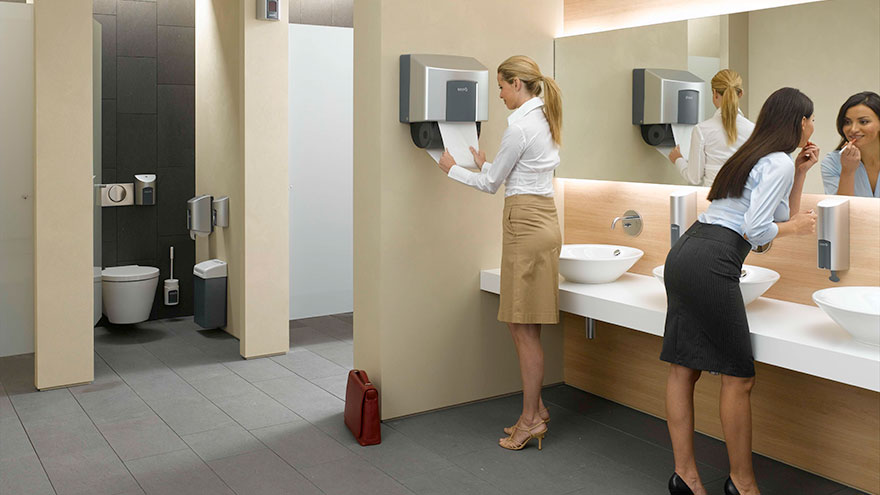Proper Hygiene in the Office
There’s a reason you’re taught at a young age to cover your mouth when you cough and wash your hands before eating. These basic hygiene practices are important when you’re a grownup in an office, where people work in close quarters and share a great deal of equipment.
Anyone who fails to follow proper hygiene puts the entire workforce at risk for contracting illnesses, such as the flu.
Call in Sick
Stay home and rest when you’re sick to avoid spreading your illness around the workplace — and to recover faster. Regular attendance is highly valued by employers, but not by a worker who is ill. In close quarters, sneezing, coughing and touching surfaces used by others facilitates the spread of germs and illnesses.
Keep Workspaces Clean
Clean your keyboard, desk, mouse and phone handset with a sanitizer regularly to kill germs before they can make you sick. A person is exposed to 400 times more germs sitting at his desk than on a toilet seat, according to the Hygiene Council.
Touching shared surfaces — such as door handles, conference room tables, kitchen appliances and vending machines — is unavoidable. When you bring germs back to your work station, you’re helping to spread bacteria and viruses.

Wash Hands Regularly
Use hand sanitizer or wash your hands with soap for 15 to 20 seconds many times a day to kill germs. Keep a bottle of hand sanitizer at your desk to make it convenient. At the sink, turn off the faucet with a paper towel when you’re finished to avoid contact with germs.
Wash your hands especially after touching shared surfaces, such as copy machines, coffeepots, elevator buttons or someone else’s keyboard. Other situations that should prompt handwashing are before a meal; after arriving at work via public transportation; after using the facilities; or after sneezing, coughing or blowing your nose.
Avoid Touching
Avoid touching your eyes, nose and mouth. Flu viruses spread primarily through bodily fluids sprayed when a person sneezes, coughs or speaks. These drops can easily land on you, and touching your eyes, nose and mouth can hasten the spread of illnesses.

